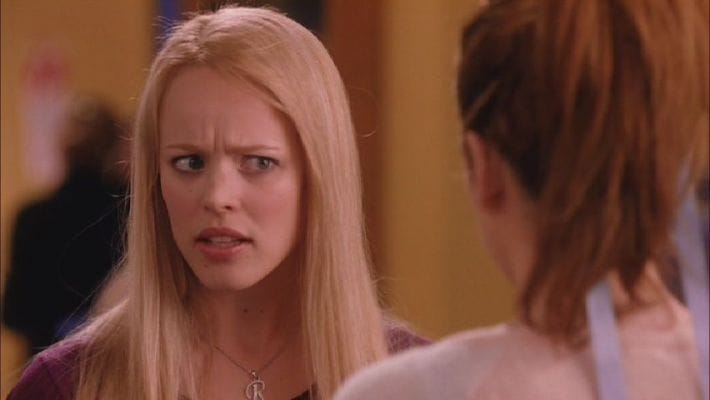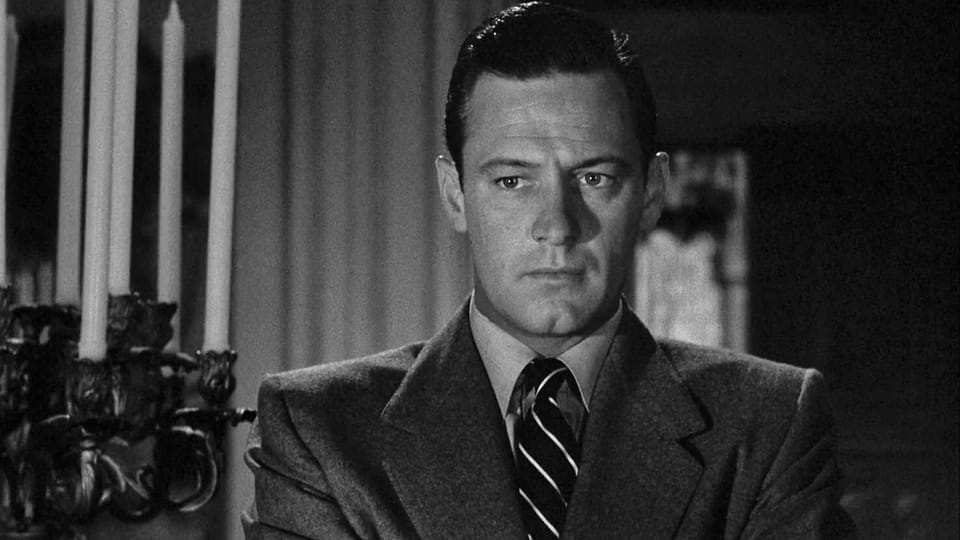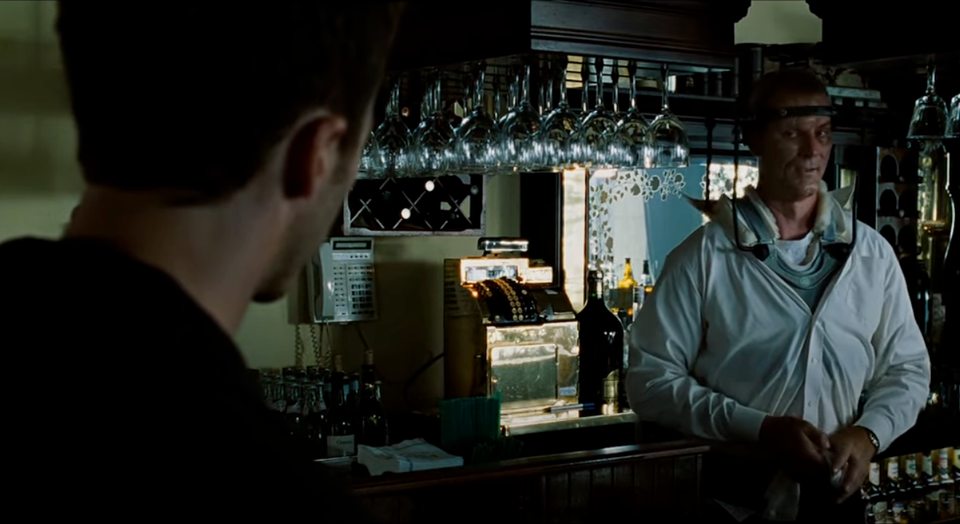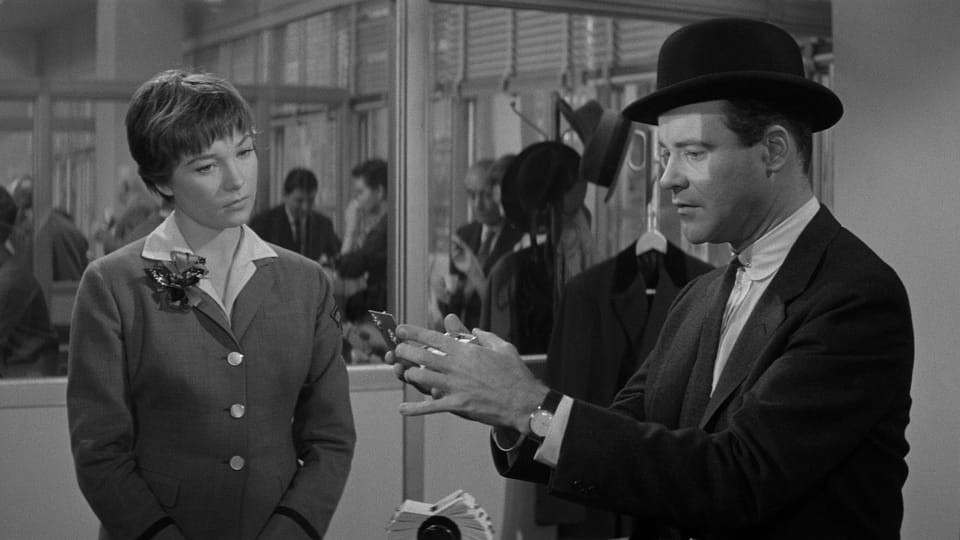Why are emerging screenwriters obsessed with format?
Format is one of the first and easiest things we learn. So why are we so concerned about doing it right?

The Story and Plot Weekly Email is published every Tuesday morning. Don't miss another one.
A student sent me some coverage she received from one of the big services. I don't have any experience with their coverage, but I know and like the company and have sent people their way many times.
The first line of the coverage is, "The ending had me in tears. Bravo!"
Since making someone feel this strongly is the goal of storytelling, you would think this coverage was going to be high praise, right?
At the very least, lament how the beginning wasn't as powerful as the ending.
Nope.
It spent 80% of its remaining space on the screenplay's "insufficiently polished" format.
Special focus was given to how the age of certain characters (like Grandpa) were not specified, and not feeling the script's use of automatic "cont'd" with dialogue.
All followed by a:
"Do not recommend at this time."
My jaw dropped.
This is missing the Sierra National Forest for the trees.
This screenplay had this reader (allegedly) in tears, yet the pass was because the format was "insufficiently polished."
I've read the script. The format is fine.
I had a similar emotional experience when I read the screenplay. It's close. It's not quite where it needs to be, but it's good.
And while I think it deserves nurturing, I can understand the pass.
No problem there.
However, spending the bulk of their time discussing format is just... odd.
I suspect that the reader knows it's not quite good enough yet and that something is missing.
They just don't know what that is so they don't know how to fix it.
That in itself is fine!
Development is a hard-earned skill that few have genuinely mastered. If they were good at it, they would be making good money at a higher-paying gig.
But a reader needs to feign authority, so they resort to the one thing they feel confident about: screenplay format.
I immediately thought to myself:
This is why emerging writers are so scared of format.
Format is one of the first things we learn and often the first thing we feel confident about.
It is a bit of knowledge that we think separates professionals from amateurs, yet it's mostly amateurs who think that way.
If this person were my reader and I found out they passed on a screenplay that I liked because of formatting issues, I would fire them.
And most producers would.
This is the weird incentive of today's paid coverage readers.
For professional readers, coverage is designed to filter screenplays for busy executives. They simply don't have time to read everything on their desk.
Someone has to read it, and that is left to interns, assistants, and sometimes professional readers.
But all those readers are responsible to their boss. They do their job well, or they do it somewhere else.
It's unclear where the incentive lies for readers who provide coverage for the writer.
As best I can tell, they get paid by the script. So, the incentive is to read as quickly as possible.
Not a great recipe for helpful coverage. Now, it has its uses, but here's how it does more harm than good.
I teach an introduction to screenwriting class at the University of Houston.
Do you know how much class time I spend on screenplay format?
These days? Zero.
I have them watch some videos for homework. That's it.
It used to be one or two classes out of the semester, but once I made a video on the topic, I don't want to waste precious class time on such a light subject.
Especially during basketball season when we have more important things to talk about.
Everything you need to know about screenplay format you can learn in an hour.
And yet, it remains the dominant topic on screenwriting social media.
People are absolutely obsessed with what they can and cannot do with screenplay format.
Now, if it's early in their career and they've seen coverage like the one I mentioned, I don't blame them.
But trust me:
That reader did not pass on the project because of the format.
They passed because they don't think the screenplay is quite there yet, but they don't know how to articulate why.
Or they decided it took too long to articulate it, and who has time for that?
Yet, any normal reading of that coverage would be: they passed because of format.
Which continues the legend, "If you don't get the format right they throw it in the trash!"
However, for anyone who can actually help you in this business, passing because of a format issue is 100% counterproductive.
It's how you lose out on possible sales, great clients, and, if you're reading on behalf of someone else, it's how you get fired.
Yet, this myth persists and shows no signs of abating.
Format should not be a concern until production.
That's what screenplay format is built for. To make production easier.
So, until you reach production, it's not something you need to worry too much about.
And even then, the strict form of screenplay format emerged before computers, when everything was typed, photocopied, and shared.
Now you can tell Final Draft that this line is a scene heading, and it will recognize it as such, regardless of what you write on it (I learned this makes the production team very happy when you do this).
This is why television writers tend to be more sticklers about format.
They are, after all, writing production drafts every week. But those sticklers either don't know or don't remember what it's like to write on spec.
So, even when writing a spec pilot for TV, don't break your back over production format.
Worry about that later, if you're so lucky that you need to.
In television, your goal is to make the showrunner happy. When writing on spec, either in TV or features, your goal is to sell the script.
These are different jobs.
People get stuck on format for their own reasons.
And this is a key understanding in the discussion. It's personal. For them. But it's not a genuine, out-in-the-wild concern.
There are countless examples of known and unknown writers experimenting with format to great success.
Notice I say "known and unknown."
The "A professional can do that, but not me" is not real.
While "A professional can do that well, but I'm not there yet" is very real.
Keep that distinction in mind.
So, what's the problem?
If tangible evidence consistently proves that working outside of strict rules is not fatal, why do people continue to cling to this idea?
I have some thoughts on this and some of them are not kind, but they are my honest thoughts.
Many will use format to position themselves as a rightful authority over you.
That is, they possess specialized knowledge, whereas you do not. This creates a relationship where you need their approval.
This comes as either a sales tactic or from insecurity, often both.
They may even believe what they're saying, but because they like the positioning, there won't be a way to get them off of it, no matter the evidence.
This comes from both professionals and non-professionals alike.
I have never seen an old pro take this unforgiving position who seemed happy with their career. This position of authority becomes very important to them and they wield it like a weapon in an attempt to squash and impress.
You will see it from less accomplished writers as well, and this is sometimes their way of feeling better than those with less knowledge. It is implied that they are a step ahead of you, you see. This feeling can ease the sting of rejection that this business so often offers.
Others are nervous or just plain scared.
They are new to this and don't want to embarrass themselves. They read somewhere (likely from one of the people above) about the importance of this and have bought in.
Once a fear is instilled it makes them tread carefully and it's difficult to move past it.
Without any tangible evidence to give them confidence, and negativity consistently whispered in their ear, how could they?
So not only do they tread the safe path, but now they must defend it as well.
Others were taught by someone who cared deeply about it and now they do too.
Christopher Riley worked in the legendary script processing department at Warner Brothers. This department would RETYPE any screenplay the studio owned so it would fit their internal standards.
They had circuit-board specifications on the exact format for a screenplay and would not budge from them.
Riley was trained there. It's in his blood. It's part of his value system.
I often disagree with his stern take, but he comes by it honestly, and his book, The Hollywood Standard, is the best book on screenplay format available.
If you ever want to know the proper way to format something and want to do it by the book, The Hollywood Standard is where you go (I'll link it at the bottom of this email).
Beliefs are hard to shake.
We hold on to them. We start to identify with them. If those beliefs are wrong, what does it say about our other beliefs? Are they ALL wrong?
Have we been doing this wrong all this time?
Most people would rather defend a bad belief than undergo the emotional strain of changing it.
There is only one golden rule to screenplay format.
It must look and read like a screenplay.
The amount of wiggle room you have after that is immense.
Now, of course, there are certain things you have to do to maintain it looking and reading like a screenplay, such as using 12-point courier font, scene headings that are all caps, and consistency in the margins.
But even those are bendable as long as they don't break the first rule above.
Make decisions by what you value.
Decide what is most important to you, and in what order, and make choices by that priority.
- Clarity is far more important than proper format.
- The emotional impact is more important than proper format.
- Readability is more important than proper format.
The only time format should be a concern for you is when it interferes with one of the things above.
It's okay to play it safe, too.
You do not have to be adventurous with exciting, new and cool ways that are all the rage after that spec sold with that weird cover page.
Don't force it.
I encourage you to go just beyond your comfort zone, but if you go much further than that it's likely because you're not actually connecting your intention with your execution.
If you cannot say, "This is my intention, and this is why doing it this way executes it best," then you're probably trying too hard.
Screenplay format is easy.
But it's not important until you get to a very different stage than where most screenplays start.
Do not absorb other people's fears. Do not let their hangups become your hangups.
In the end, all that matters is YOUR intention.
What do you want the reader to see?
What do you want the reader to feel?
How do you best execute that on the page?
Take smart chances. Have fun.
But remember that no amount of style or creative formatting can save a bad story.
The goal of all of this is to make a great story easier to identify.
The Story and Plot Weekly Email is published every Tuesday morning. Don't miss another one.
When you're ready, these are ways I can help you:
WORK WITH ME 1:1
1-on-1 Coaching | Screenplay Consultation
TAKE A COURSE
Mastering Structure | Idea To Outline




